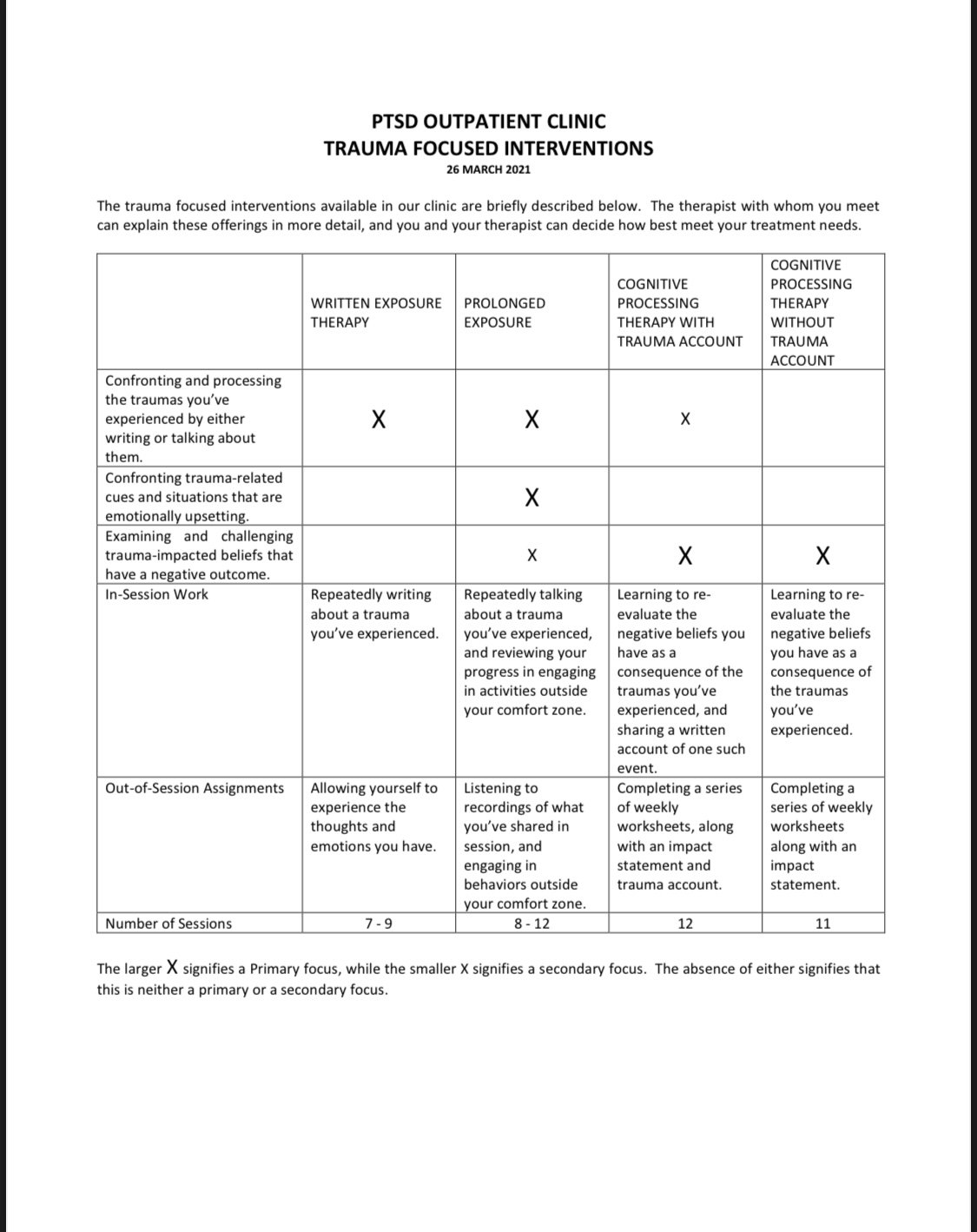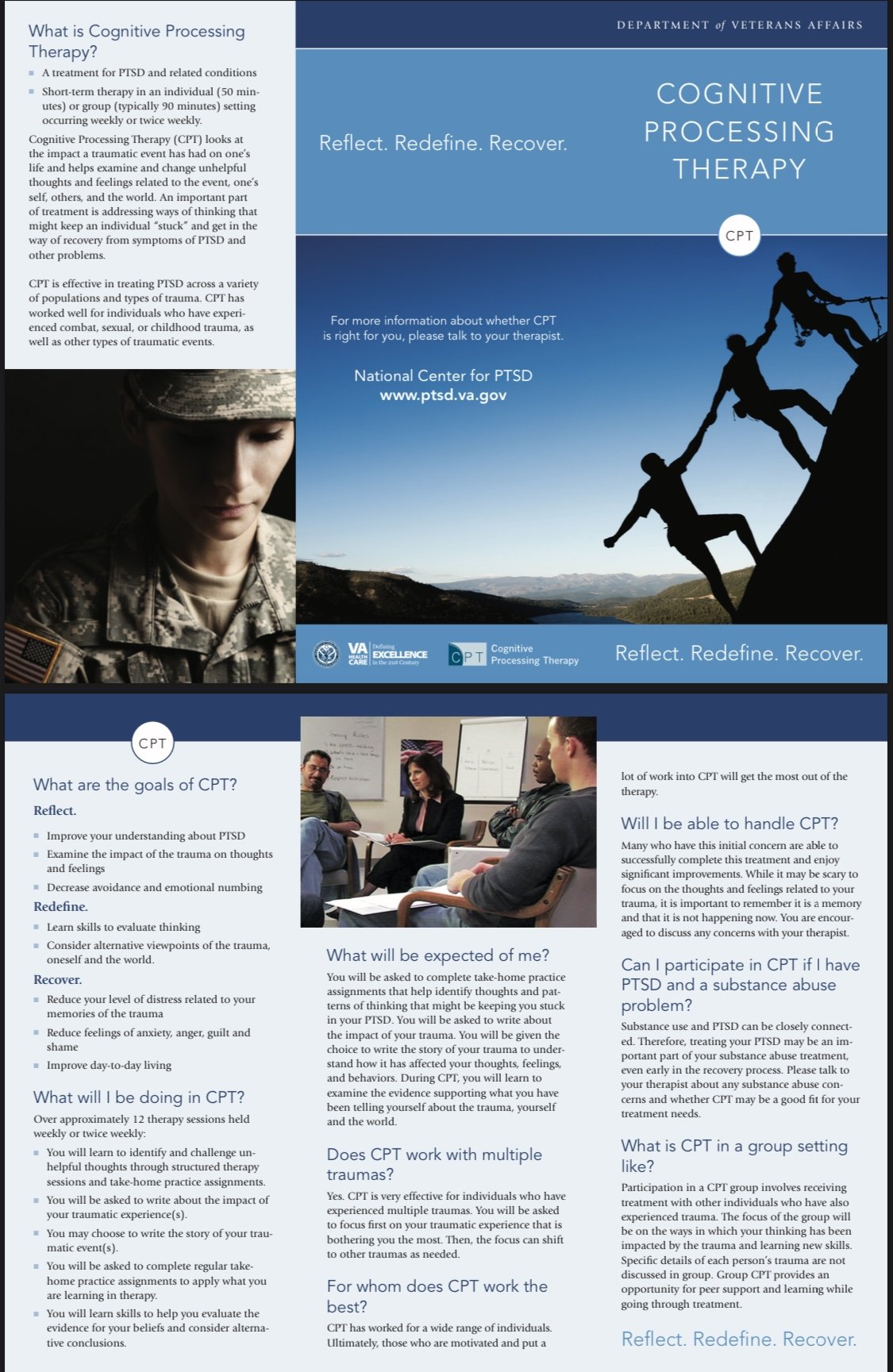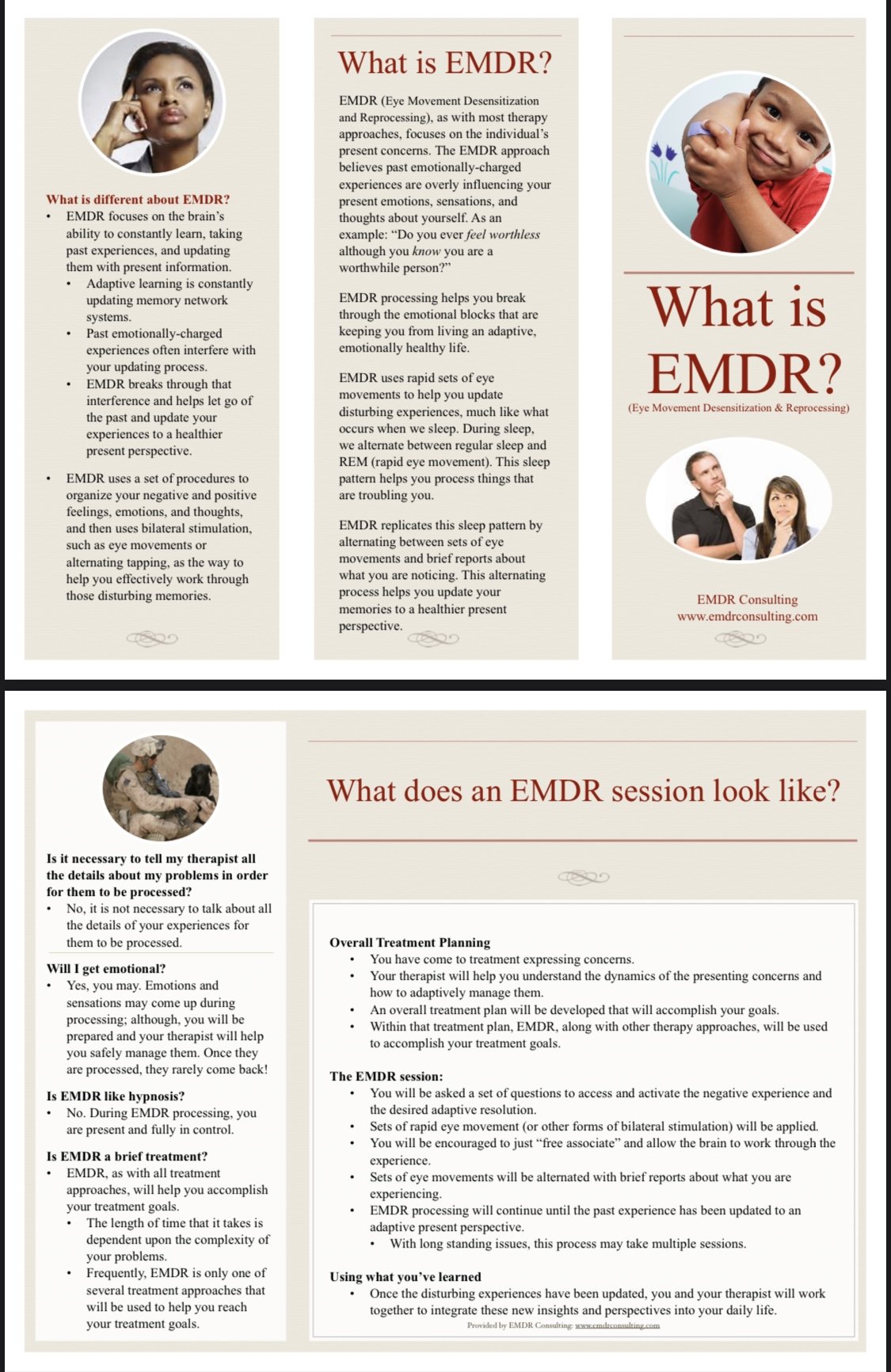Harvard Veterans Alumni Organization
Mental Health Initiative
Evidence-Based Therapy Available for Veterans at the Department of Veterans Affairs
“Evidence-based therapies (EBTs) have been shown to improve a variety of mental health conditions and overall well-being. These treatments are tailored to each Veteran’s needs, priorities, values, preferences, and goals for therapy. EBTs often work quickly and effectively, sometimes within a few weeks or months, depending on the nature or severity of your symptoms” (VA.gov, 2023).
• Acceptance and Commitment Therapy for Depression (ACT-D)
• Behavioral Activation (BA)
• Behavioral Family Therapy (BFT)
• Cognitive Behavioral Conjoint Therapy (CBCT)
• Cognitive Behavioral Therapy
• Cognitive Behavioral Therapy for Depression (CBT-D)
• Cognitive Behavioral Therapy for Insomnia (CBT-I)
• Cognitive Behavioral Therapy for Substance Use Disorders (CBT-SUD)
• Contingency Management (CM)
• Cognitive Processing Therapy (CPT)
• Dialectical Behavioral Therapy (DBT)
• Eye Movement Desensitization Reprocessing for PTSD (EMDR-PTSD)
• Integrative Behavioral Couples Therapy (IBCT)
• Interpersonal Therapy (IPT)
• Motivational Enhancement Therapy (MET)
• Problem-Solving Therapy (PST)
• Prolonged Exposure Therapy (PE)
• Safety Planning (SP)
• Social Skills Training (SST)
• Written Exposure Therapy
Department of Veteran Affairs treatment options for trauma-focused intervention for PTSD (VA.gov, 2023).
Alternative Treatments Available for U.S. Military Veterans
Health Resources for Veterans
Intimate Partner Violence Assistance Program (IPVAP)
24/7, confidential crisis support for Veterans and their loved ones.
Millions of Americans have mental and substance use disorders. Find treatment here.
Research Study: Brain Stimulation TBI & Memory: Memory in Older Adults With TBI
Research Study: Biofeedback Amputee Rehabilitation
Research Study: Biomarkers, Health Prediction & Gulf War Illness
Research Study: BRAIN STIMULATION, PAIN & GULF WAR ILLNESS
Research Study: BRAIN STIMULATION, BRAIN INJURY & MEMORY
Research Study: NEUROIMAGING, BRAIN INJURY & GENDER
Educational Resources
What Is Neurofatigue and How Does It Relate to Brain Injury and PTSD?
Tools for Managing Stress and Worry
What are the symptoms of Gulf War syndrome?
Inflammation and psychological symptoms may be related to blast exposure in post-9/11 Veterans
Gulf War Illness Linked to Brain Inflammation
Combat Veterans’ Brains Reveal Hidden Damage from IED Blasts
Benefits and Challenges of Using Service Dogs for Veterans With Posttraumatic Stress Disorder
PTSD Biomarkers Found in Blood
What Alcohol does to your Body, Brain, and Health.
Intimate partner violence: Wounds are deeper
Individual differences in the neuropsychopathology of addiction
The Science and Treatment of Obsessive-Compulsive Disorder (OCD)
Chronic sinus inflammation appears to alter brain activity
The Science and Process of Healing from Grief
Using Light (Sunlight, Blue Light, and Red Light) to Optimize Health
Dr. Matthew Walker: The Science and Practice of Perfecting your Sleep
Plants of the Gods: The Ethnobotany of Warfare.
Sebastian Junger: Seeking Freedom, Near-Death Experiences, and Reordering Yourself in the World.
Psychiatric Issues in Women Veterans
Sex Differences in the Neurobiology of Stress
What is intimate partner violence? It’s not just physical abuse
VA strengthens care for Veterans impacted by intimate partner violence and sexual assault
For more information about HVAO’s Veteran Mental Health Initiative please contact our Special Initiatives Officer, Melanie Boling at mentalhealth@harvardveterans.org.







